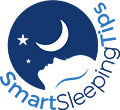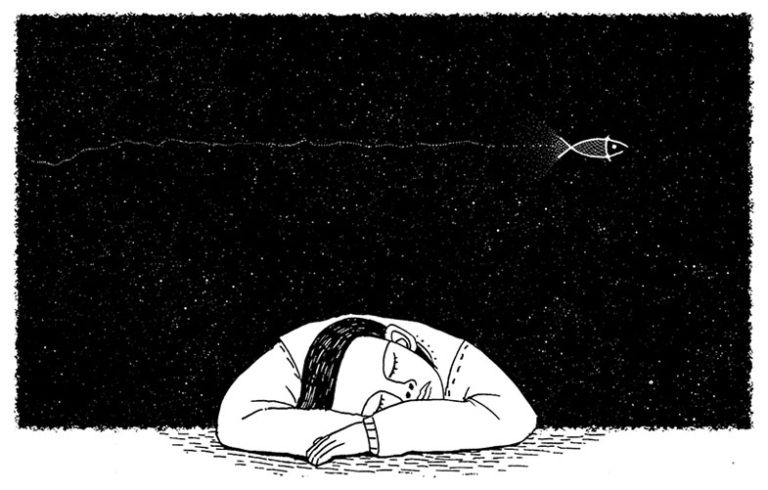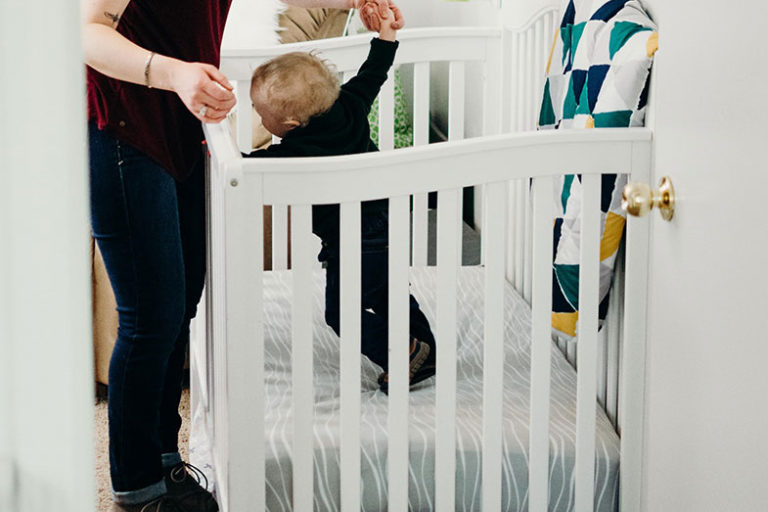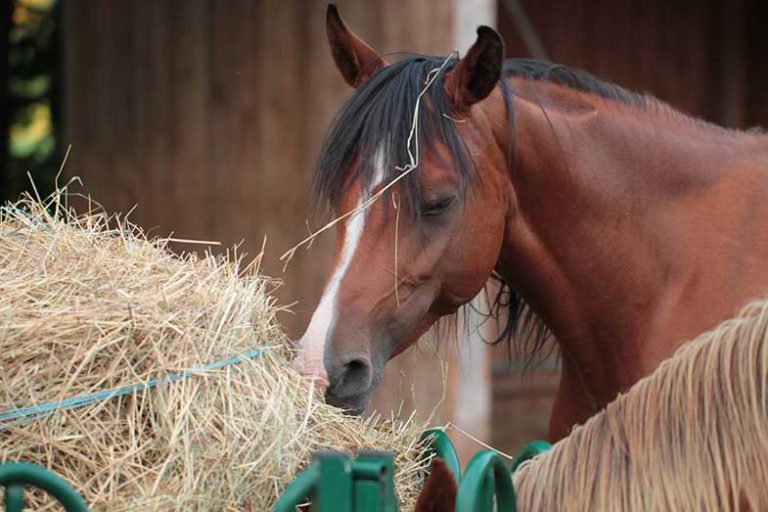Should You Brush Your Teeth Before and After a Nap?
Disclosure: We may get commissions for purchases made through links in this post.
The mouth serves as one of the windows to your inner health, but did you know that the mouth that is actually the dirtiest part of your body? Since you already brush your teeth at the beginning and end of the day, you may wonder if you should also do it before and after a nap.
It doesn’t matter when you brush your teeth as long as it is done twice a day. Following a meal, you should wait at least 20 minutes to avoid damage to the enamel. Brushing and flossing regularly can help prevent the risk of oral infection.
A number of oral care experts have differing opinions about brushing your teeth. There are some that say brushing your teeth only once a day is okay as long as it is done correctly. If you’re curious to find out more, continue reading to find out why oral health is essential to overall wellness.
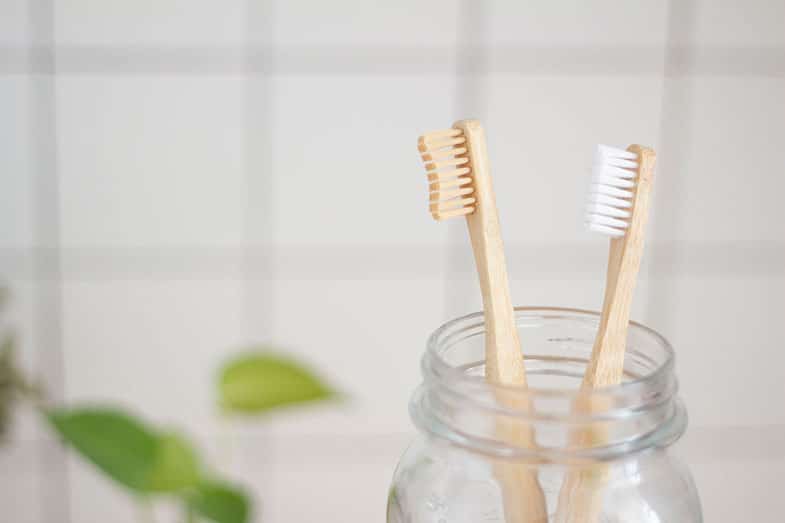
Is Brushing the Teeth Necessary?
Brushing your teeth is essential to overall wellness. Aside from keeping your teeth and gums clean and healthy, preventing tooth loss and stinky breath, brushing has many benefits that a lot of people don’t know about. Here are some of them:
- Keeps you away from heart disease and stroke – when bacteria overgrows in your mouth, it can enter your bloodstream and pass through the heart. These bacteria will then stick to the plaques in your arteries, increasing your risk of heart disease and stroke.
- Maintains lung health – your lungs are in close proximity to your heart. Anything that flows through your heart passes your lungs too, so the bacteria that joined your bloodstream can also cause various diseases such as bronchitis and even pneumonia.
- Increases your chance of having healthy babies – gum disease is one of the major causes of impotence. Brushing your teeth prevents infertility problems which can hinder you from having healthy babies!
- Helps you maintain a healthy weight – when you brush your teeth, it signals your brain that meal time is over! In addition, food doesn’t taste so good after brushing your teeth.
Besides all these health benefits, having squeaky clean and fresh breath boosts your confidence! Regular brushing keeps your teeth white and bright so you’re not afraid to smile or laugh. You also save on money not having to always visit the dentist.
Is It Bad to Nap and Not Brush Your Teeth?
Timing is not important when brushing your teeth, as long as you brush twice a day within a 24-hour period, then you’re all clear.
The bacteria in your mouth produces acid throughout the day. Bacteria increases acid production even more when you eat. For this reason, you have to brush your teeth so you can get rid of the bacterial by-products. If not, it will eat out the enamel of your teeth and result into cavities.
If you already brush first thing in the morning and last thing before bed, stick to that routine. Dentists do recommend this brushing schedule, not because it’s the best time, but to help you form a healthy habit. If you’re one of those people who can’t doze off without a toothbrush and toothpaste in hand, then you should never have problems with bad breath or tooth decays.
Why Do Your Teeth Feel Weird After a Nap?
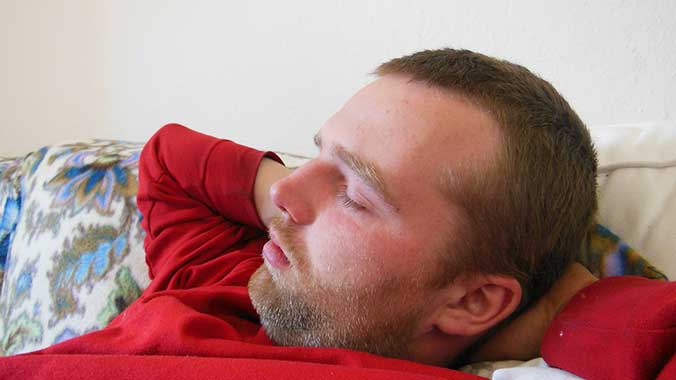
Have you ever experienced waking up with your teeth feeling sore? You wonder why when your teeth were fine and healthy before you took a nap. Sometimes, this soreness can come with a headache or jaw pain. Although it’s just your teeth, it can be quite uncomfortable and inconvenient. You might find it hard to eat or chew. Why do your teeth really feel weird after a nap? Below are some reasons:
- Teeth Grinding Or Jaw Clenching – according to studies, 1 in 12 people grind or clench their teeth when they sleep. This can be due to stress, constant dreaming and irregular room temperatures.
- Food in your teeth – you might have eaten something and it got stuck in your teeth. This puts pressure on your gums which can cause inflammation and pain.
- Sleep positions – waking up on the wrong side of the bed can cause teeth soreness. For example, you might have slept with your hands underneath your jaw or your rings or bracelets might have placed pressure on your face.
- Cleaning or dental appointment – when metal, dental tools get into contact with your teeth, it makes it sensitive. As a result, you feel soreness when you wake up.
What Happens If You Only Brush Your Teeth Once a Day?
If you only brush your teeth once a day, you increase your risk of gum disease. However, there’s a slim chance that you will experience a full-blown gum disease.
When you skip your second brush, the food particles from your breakfast, lunch and dinner stay longer in your teeth, not to mention the random snacks and sweets you eat during the day. Plaque build up develops and cavities will start to occur. However, if you brush your teeth even once, you will be able to stop bacteria before it eats up the inner tissues of your gums.
In addition to gum disease and tooth decay, halitosis a.k.a bad breath will eventually happen. You can use all the mints and oral wash on the world, but if bacteria thrives inside your mouth, it will be challenging to cure the stench.
Is Brushing Your Teeth 3 Times a Day Bad?
Brushing your teeth 3 times a day is not necessarily bad. In fact, some experts say that up to 4 times is all right. However, how you brush your teeth and the products you use matters.
Leading consumer product company, Colgate, suggests using soft-bristled toothbrush that fits the size and shape of your mouth. Replacing this toothbrush every few months is also best.
When you brush your teeth, it’s essential to do gentle, short strokes. Besides cleaning the inner surface and chewing surface of your mouth, you also need to clean the outer surface using back and forth movement. If you want to clean in between your teeth, you need to use vertical brush strokes.
Besides good oral hygiene, having your teeth cleaned by a professional is important. Professional teeth cleaning can get rid of stubborn plaque buildup and deposits on your teeth that regular brushing can’t remove.
Excessive brushing becomes harmful when you use hard-bristled toothbrush and toothpaste that contains silica. Silica is a synthetic ingredient found in many oral care products that causes abrasion to your teeth.
Effects of Not Brushing Your Teeth at Night
Brushing your teeth is essential for reasons beyond fresh breath. If you miss brushing your teeth for 24 hours, a thin film called plaque starts to appear on your teeth. This will not cause any damage on your teeth, but it can progress as the days go by.
After several days of not brushing your teeth, plaque buildup becomes thicker and bad breath develops. Gingivitis, a gum disease, may also start to occur. The first sign of gingivitis is gum bleeding. Bacteria also starts to reside inside your mouth where they will destroy the walls of your gum and attack your teeth. As a result, you will notice gum redness and tooth decay. White spots in your gum will start to appear, which indicates decalcification of your teeth.
How to Brush Your Teeth the Right Way!
Doing a so-so brushing won’t help your oral health. You know you have to brush your teeth twice a day, and this routine is no joke.
First of all, you have to use a good toothpaste and soft-bristled brush. It’s also best to floss before brushing. Dentists advice starting on your back teeth and the upper molars, and use a clockwise direction. You should make sure that every session lasts for two minutes and cover all parts of your mouth including the gums, tongue and the roof of your mouth.
Remember, gum, mints and mouthwash are not good alternatives to consistent brushing. They can make your breath temporarily fresher, but brushing your teeth and flossing are the best ways to maintain oral health.
How to Improve Teeth Health Naturally
More than brushing your teeth, there are many natural ways to keep your teeth healthy and clean. If you don’t like using synthetic or commercial ingredients, below are excellent tips that you can use!
- Avoid sugar – mouth bacteria love sugar and starch so don’t give them the chance to thrive!
- Try charcoal – if you want to go all natural, charcoal can whiten the teeth, detoxify your mouth and fight bacteria.
- Irrigate your mouth – oral irrigators are so popular these days for a reason! This cleaning aid helps you pump water and get rid of food that has been stuck in your teeth.
- Don’t smoke – tartar is hard to remove via brushing, so you might have to go to the dentist to remove it.
- Eat smart – have a balanced diet filled with nutrients that can make your teeth strong. This includes fatty fish, nuts, seeds, citrus fruits, organic meat and green leafy vegetables. All these foods have omega-3, calcium, magnesium, vitamin C, A and D that help strengthen your teeth.
- Make a DIY toothpaste – commercial toothpaste has plenty of harmful chemicals such as artificial coloring, triclosan, sodium lauryl sulfate, formaldehyde and GMOs. You can make your own toothpaste with raw cacao powder, baking soda, coconut oil and essential oils!
- Drink water – besides keeping you hydrated, it also washes out bacteria and neutralizes the acids in your mouth.
- Do oil pulling – this is an Ayurvedic practice that has been used for centuries. All you have to do is put a small amount of coconut oil in your mouth and swish it for 10 to 20 minutes. Rinse with warm water after and brush as usual. Don’t gargle and swallow the oil. Oil pulling flushes out toxins and keeps your mouth tissue healthy.
- Have some tea – herbal tea such as white and green tea can help cleanse your mouth after eating. They also prevent bacteria and plaque from invading your mouth.
- Gargle with herbs and spices – clove, aloe vera juice, turmeric and licorice have antibacterial properties. Herbs such as mint and parsley also help fight tartar and whiten your teeth.
Conclusion – Should You Brush Your Teeth Before and After a Nap?
What do you use to keep your teeth healthy? Your mouth might some like a minor organ in your body, but it actually does a lot, and if not taken cared of, it can pose great dangers to your health. Be sure to give your mouth some extra love and TLC from now on!
